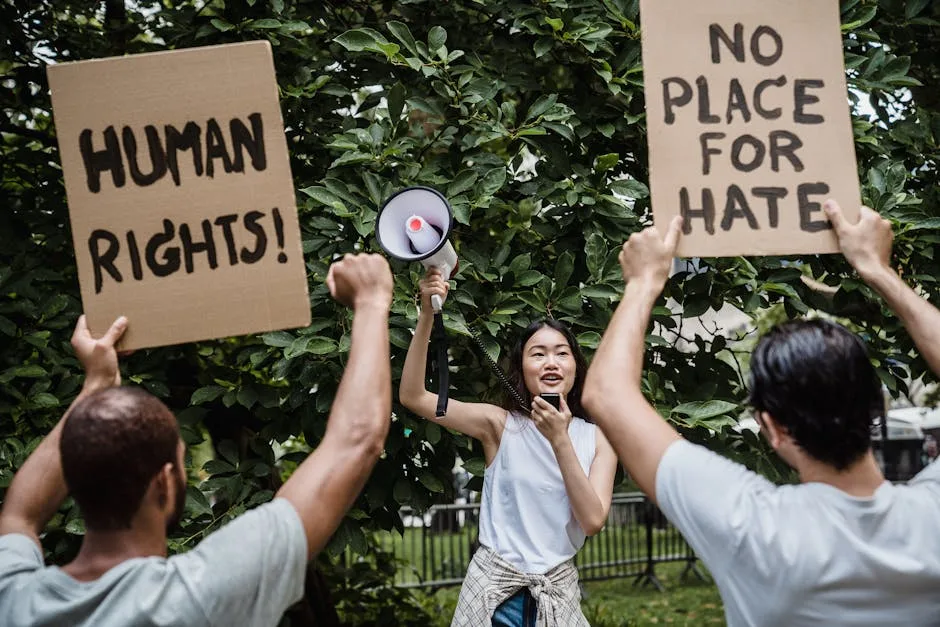
The recent dismissal of charges against eight individuals involved in racist chants during a May Day event in Nagold, Germany, has sparked debate about the legal boundaries between free speech and incitement to hatred. According to the Frankfurter Allgemeine Zeitung (FAZ), the state prosecutor determined that while the chants—which included phrases like “Germany for Germans, foreigners out”—were “morally reprehensible,” they did not meet the legal threshold for criminal incitement under German law. This decision mirrors similar cases, such as the Sylt incident, where minimal penalties were applied despite public outcry.
Legal Analysis of the Case
The Nagold case highlights the challenges in prosecuting hate speech under Germany’s legal framework. The state prosecutor emphasized that the chants, though xenophobic, constituted protected opinion under constitutional free speech provisions. This interpretation aligns with recent rulings in comparable cases, such as the Sylt video incident, where only one participant faced penalties (a €2,500 fine for a Hitler salute). Legal experts note that proving intent to incite violence or hatred remains a high bar, particularly when speech lacks direct calls to action.
Parallel investigations are ongoing in Nagold for a separate August 2024 incident involving alleged Volksverhetzung (incitement to hatred), as reported by Süddeutsche Zeitung (SZ). The contrasting outcomes of these cases underscore the nuanced application of hate speech laws, where context and evidence play decisive roles.
Societal and Political Context
The dismissal has reignited discussions about rising far-right activity in Germany. Politicians from the Greens and SPD, including Göring-Eckardt and Kühnert, have reported increased threats linked to extremist hostility. The Nagold incident reflects broader trends of normalized xenophobic rhetoric, with legal protections often shielding overtly discriminatory speech unless it crosses into explicit incitement.
Comparative data from the Sylt case, as covered by Stern, shows a pattern of leniency in prosecuting hate speech, raising questions about the efficacy of current laws in deterring such behavior. Critics argue that without stricter enforcement, public displays of racism may proliferate, emboldened by perceived legal impunity.
Relevance to Security Professionals
For security teams monitoring extremist threats, the Nagold case illustrates the importance of distinguishing between legally protected speech and actionable incitement. While offensive rhetoric may not always meet criminal thresholds, it can signal escalating risks of violence or coordinated harassment campaigns. Proactive measures, such as tracking online forums and local gatherings, remain critical for early threat detection.
Key takeaways for incident response include:
- Documenting hate speech incidents with timestamps and contextual evidence to support potential legal action.
- Collaborating with legal teams to assess jurisdictional variations in hate speech laws.
- Monitoring parallel cases (e.g., Sylt, Nagold August 2024) for evolving legal precedents.
Conclusion
The Nagold ruling underscores the tension between free speech protections and efforts to combat hate speech. As Germany grapples with rising far-right activity, the legal system’s role in defining and penalizing incitement will remain contentious. Security professionals must balance vigilance against extremist threats with an understanding of the legal frameworks governing speech.
References
- “Rassistisches Gegröle am 1. Mai: Verfahren eingestellt,” Frankfurter Allgemeine Zeitung, 2024. [Online]. Available: https://www.faz.net/agenturmeldungen/dpa/rassistisches-gegroele-am-1-mai-verfahren-eingestellt-110447428.html.
- “Rassistische Sprüche in Nagold: Ermittlungen wegen mutmasslicher Volksverhetzung laufen noch,” Süddeutsche Zeitung, 2024. [Online]. Available: https://www.sueddeutsche.de/panorama/rassistische-sprueche-in-nagold-ermittlungen-wegen-mutmasslicher-volksverhetzung-laufen-noch-dpa.urn-newsml-dpa-com-20090101-240801-930-191037.
- “Sylt: Rassistische Gesänge – Ermittlungen eingestellt,” Stern, 2024. [Online]. Available: https://www.sueddeutsche.de/panorama/sylt-pony-bar-rassistische-gesaenge-ermittlungen-eingestellt-li.3243308.




